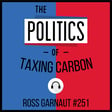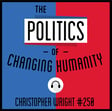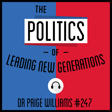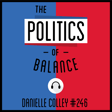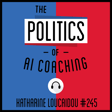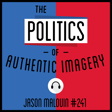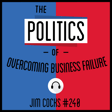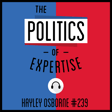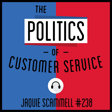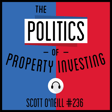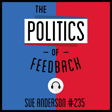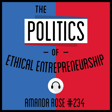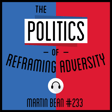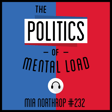
221: The Politics of Gendered Ageism - Bonnie Marcus
The famous saying goes, if only you could put an old head on young shoulders. When I was a teen and my dad said this it seemed like a positive validation that getting older was a milestone to be celebrated and revered even. However, western society today is youth-obsessed – from stories of billionaires in their 20s and 30s being the big news, to the brutal reality women over 40 struggle to be counted by anyone other than markets for beauty products and anti-aging diets peddled often by far younger social media celebrities and influencers. Looking younger for even a career to last seems to be the goal which is sometimes jarring and sexist. As a leading expert on gendered ageism, Bonnie Marcus equips ambitious professional women over 50 with the tools and strategies they need to overcome ageist assumptions in the workplace and take charge of their careers. Her book Not Done Yet!, empowers women over 50 to regain their confidence and claim workplace power. Starting in an entry-level position, Bonnie worked her way to the C-suite, despite the challenges of sexism and ageism, otherwise known as gendered ageism. Bonnie made it her mission to ensure women at any stage of their career know how best to advocate for themselves and understand office politics to advance their careers, especially women over 50 who are often marginalized once they show signs of visible aging. As Founder of Bonnie Marcus Leadership, LLC, a premier leadership and coaching firm today she empowers women to understand the value they bring to the table and own the power of their age.
We discuss:
1. Her research on gendered ageism in the workplace wanted to determine how ageist assumptions affect women, corporations, and the economy. What are the most surprising findings that you found?
2. How can corporations create a more diverse and equitable workforce, and work with women to empower them to achieve their career goals without the bias of age holding them back.
3. What are the main or necessary tools needed empower women in the workplace to create a more diverse and equitable workforce where your age and gender are not pluses or minuses?
4. What about specific age-related issues for women like menopause? How can we navigate that in workplaces with less stigma? Some 2023 research found almost a quarter (23%) of women have considered quitting due to the impact of menopause or menstrual symptoms at work, and over one in ten (14%) are actively planning to quit.
5. Takeaway: What is your final takeaway message for us on The Politics of Gendered Ageism?
Connect further:
LinkedIn: (99+) Bonnie Marcus | LinkedIn
